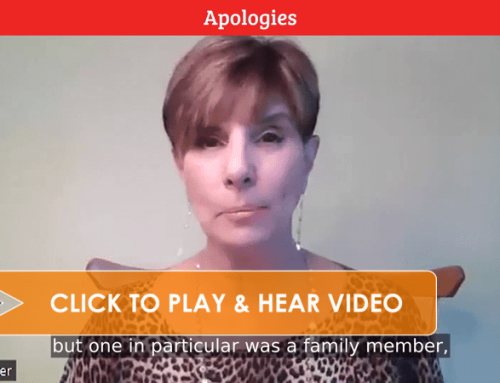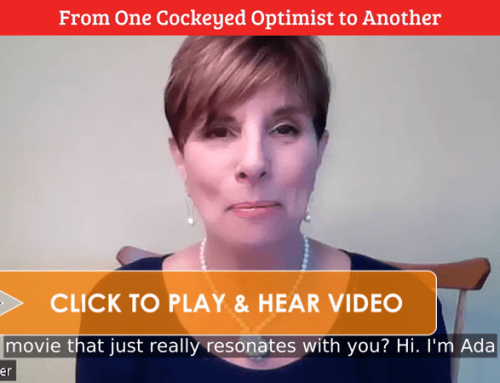 My friend Marie’s mother is 99 years old. She still gardens, lives independently, and much to Marie’s chagrin, won’t even allow an aide to assist her during the day. One afternoon Marie called her from work and the phone just rang and rang and rang.
My friend Marie’s mother is 99 years old. She still gardens, lives independently, and much to Marie’s chagrin, won’t even allow an aide to assist her during the day. One afternoon Marie called her from work and the phone just rang and rang and rang.
Naturally Marie was worried, imagining the worst. She was just about to leave her office in Manhattan to shlep all the way to Queens to make sure her mother wasn’t lying on the floor when she tried to call one last time. Finally, her mother picked up the phone wondering what all the fuss was about. She was out in the garden and didn’t hear the phone ring.
Marie was recounting this story during a dinner with friends. Those of us of a certain age can totally relate to her concern. She regaled us with stories about her mother’s need for independence coupled with her need to be sure her mother was taken care of without trampling on her self-reliance. She went on to tell us that her mother, who obviously still has some starch in her, complained to Marie, “It all started to go downhill when I turned 95.” Love that!
It got me wondering about perspective. One of The New World Dictionary definitions for perspective is: “The relationship or proportion of the parts of a whole, regarded from a particular standpoint or point in time.” Simply put, perspective is how we see things from our point of view. It’s totally subjective, is it not?
In a divorce mediation, there are three perspectives at work: the point of view of the mediator and the point of view of each client. Each one of us holds a specific perspective depending on:
- Where we stand (right now);
- What our motives and interests are;
- What our concern is for the future.
As mediators, our role is as clear as our perspective: Assist our clients to get from point A to point Z within a circumscribed period of time, as amicably as we can, with the least cost, both financially and emotionally, as possible. Simple enough.
Our clients’ perspectives, however, are unknown until we meet them and find out where they are right now, what their motives and interests are and what concerns they hold for their future. Even when their mutual perspectives are similar enough, depending on their vantage point, they may see and perceive things quite differently.
- One may want to move forward more quickly than the other and “get this done.”
- The other may hold grudges and past grievances that he or she needs to air before they can move on.
- One spouse may have huge concerns about their financial future.
- The other spouse may be worried about how the children will react to the impending separation.
Whatever our clients’ perspectives are, they must be considered, addressed and ultimately resolved. Understanding how the conflicting points of view converge, overlap and meld is one of the mediator’s great tasks. The next task is to help bring them all into focus so that each participant can see the other’s perspective. In this way, they can work together more effectively in achieving their mutual and respective goals.
Sounds easy, right? Well, as easy as understanding that it all starts to go downhill at 95! But we won’t let a little thing like that stop us.






I have had many situations where one person wants to talk about the past and why they got here while the other is constantly looking at his/her watch and pointing out how much this is costing and that this is not therapy. You are absolutely correct; it is the job of the mediator to make sure the needs of each client is considered, addressed and ultimately resolved. The trick is to honor the needs of each person without losing the other.
There is no “trick” per se in putting forth the “rules” of etiquette to be observed during a mediation event. I initiate each interview with the “rules of behavior” to be observed. My goal is to have each party have his/her say to completion, repeat it for clearance, then go from there on to the other outstanding subjects, by mutual agreement,to be examined. Each party knows they will have equal address to the subject(s). This has worked just fine over the years. Granted some parties get “carried away” but it is the responsibility of the mediator to intervene and remind the party (parties) of the rules of etiquette during the session(s. This has worked well for me for the past ten years and releases a lot of implied pressure that sometimes can derail a good session.
My husband used mediation in his divorce and I’d say it did help. Yes a child was involved. His ex refused to give him time with his daughter and the mediator helped his ex realize he needed time and she was be unreasonable. So yes it helps.